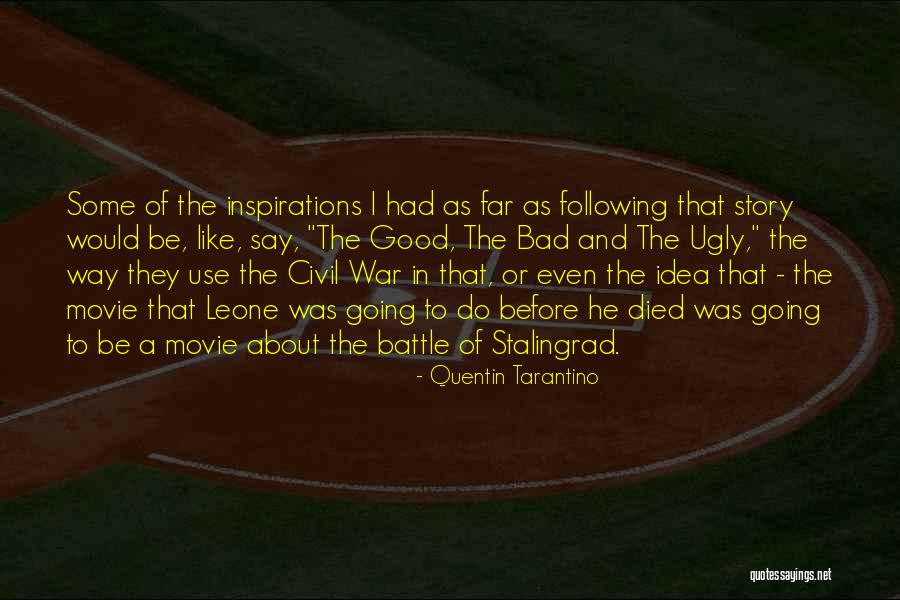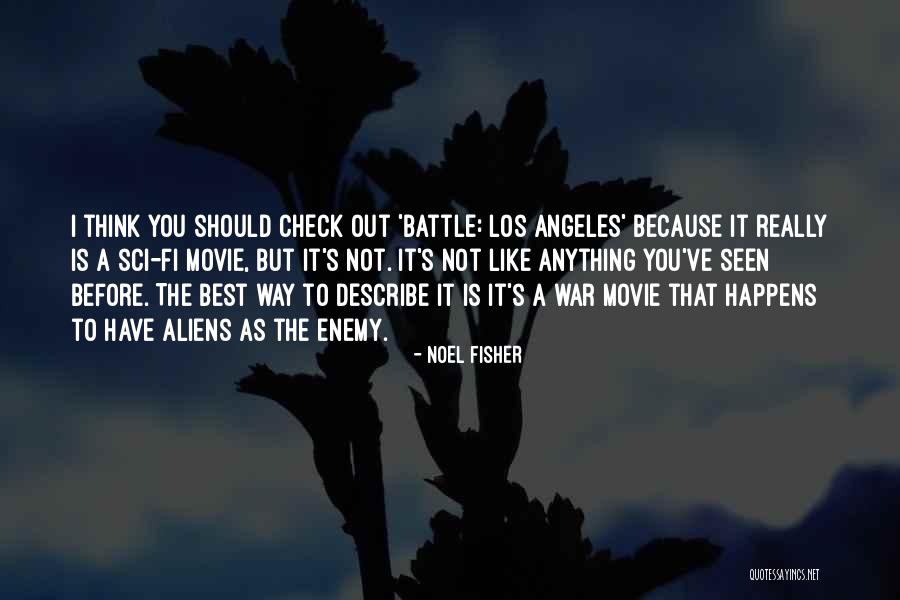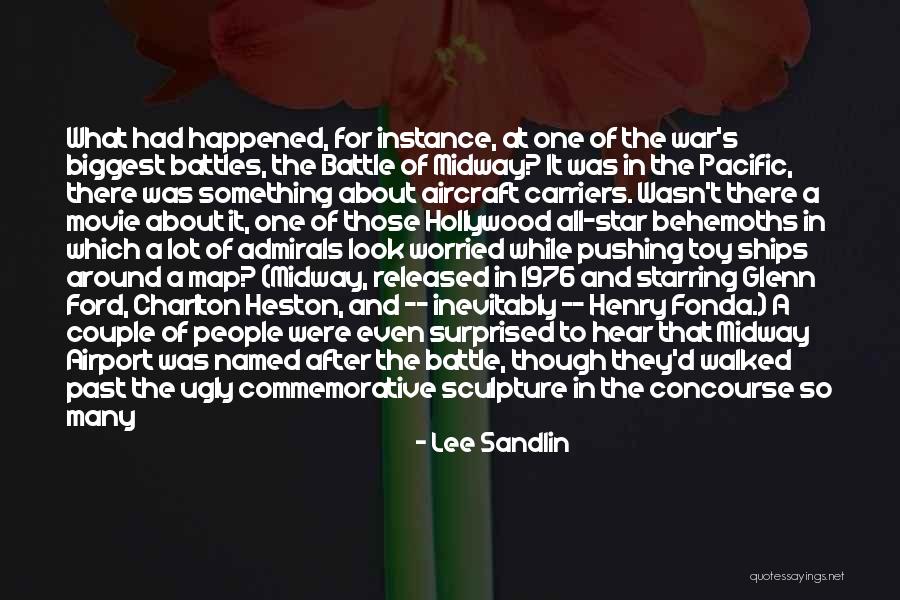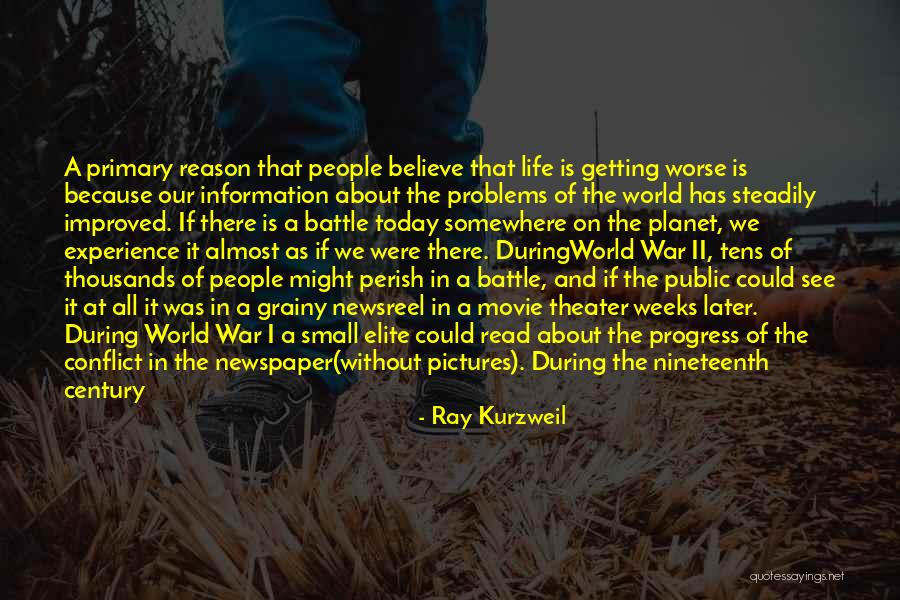War Movie Battle Quotes & Sayings
Enjoy reading and share 4 famous quotes about War Movie Battle with everyone.
Top War Movie Battle Quotes

Some of the inspirations I had as far as following that story would be, like, say, "The Good, The Bad and The Ugly," the way they use the Civil War in that, or even the idea that - the movie that Leone was going to do before he died was going to be a movie about the battle of Stalingrad. — Quentin Tarantino

I think you should check out 'Battle: Los Angeles' because it really is a sci-fi movie, but it's not. It's not like anything you've seen before. The best way to describe it is it's a war movie that happens to have aliens as the enemy. — Noel Fisher

What had happened, for instance, at one of the war's biggest battles, the Battle of Midway? It was in the Pacific, there was something about aircraft carriers. Wasn't there a movie about it, one of those Hollywood all-star behemoths in which a lot of admirals look worried while pushing toy ships around a map? (Midway, released in 1976 and starring Glenn Ford, Charlton Heston, and -- inevitably -- Henry Fonda.) A couple of people were even surprised to hear that Midway Airport was named after the battle, though they'd walked past the ugly commemorative sculpture in the concourse so many times. All in all, this was a dispiriting exercise. The astonishing events of that morning, the "fatal five minutes" on which the war and the fate of the world hung, had been reduced to a plaque nobody reads, at an airport with a vaguely puzzling name, midway between Chicago and nowhere at all. — Lee Sandlin

A primary reason that people believe that life is getting worse is because our information about the problems of the world has steadily improved. If there is a battle today somewhere on the planet, we experience it almost as if we were there. During
World War II, tens of thousands of people might perish in a battle, and if the public could see it at all it was in a grainy newsreel in a movie theater weeks later. During World War I a small elite could read about the progress of the conflict in the newspaper
(without pictures). During the nineteenth century there was almost no access to news in a timely fashion for anyone. — Ray Kurzweil





